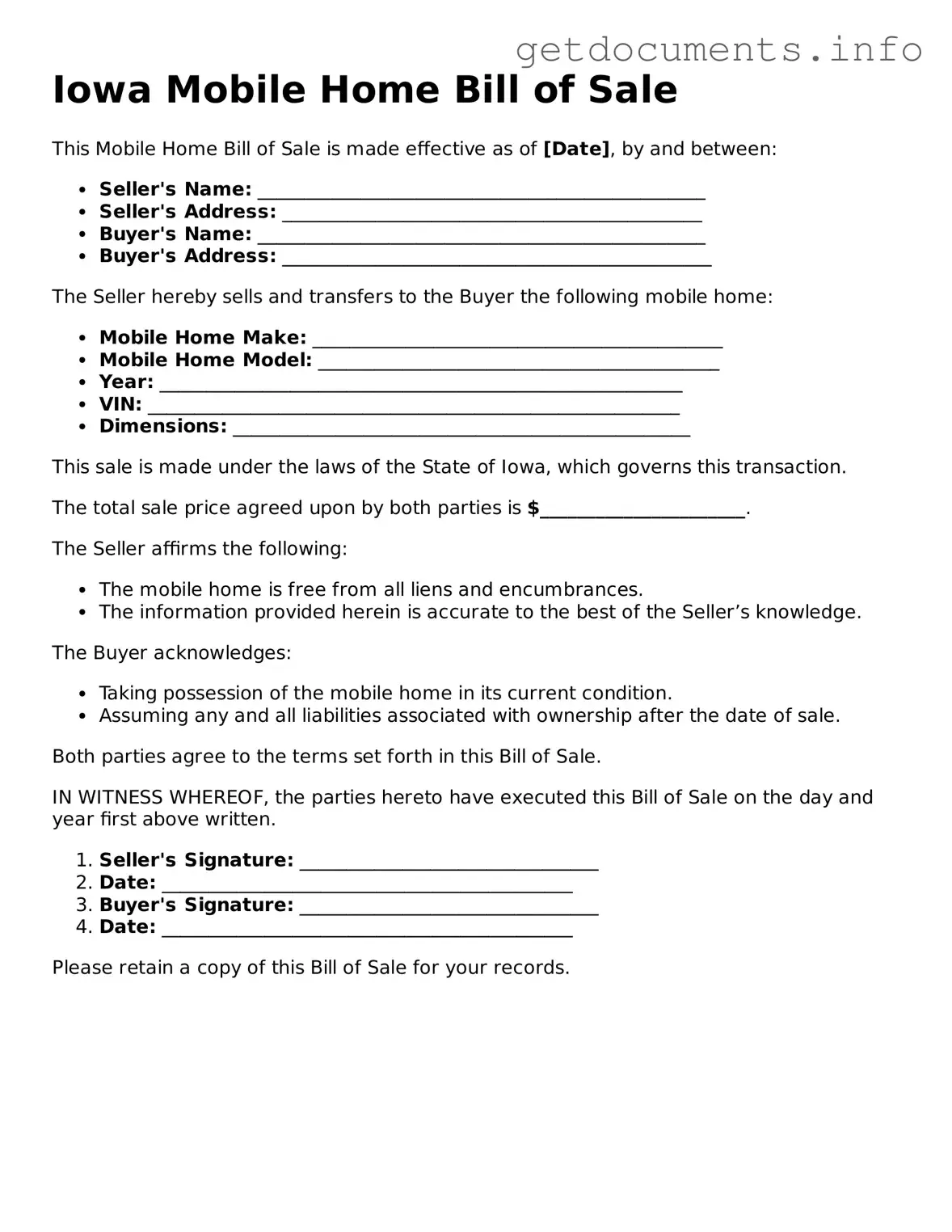Free Mobile Home Bill of Sale Template for Iowa
The Iowa Mobile Home Bill of Sale form is a legal document used to transfer ownership of a mobile home from one party to another. This form serves as proof of the sale and outlines important details such as the buyer, seller, and the mobile home's specifications. If you're ready to complete your transaction, fill out the form by clicking the button below.
Access Mobile Home Bill of Sale Editor

Free Mobile Home Bill of Sale Template for Iowa
Access Mobile Home Bill of Sale Editor
Got places to be? Complete the form fast
Fill out Mobile Home Bill of Sale online and avoid printing or scanning.
Access Mobile Home Bill of Sale Editor
or
⇩ PDF File
